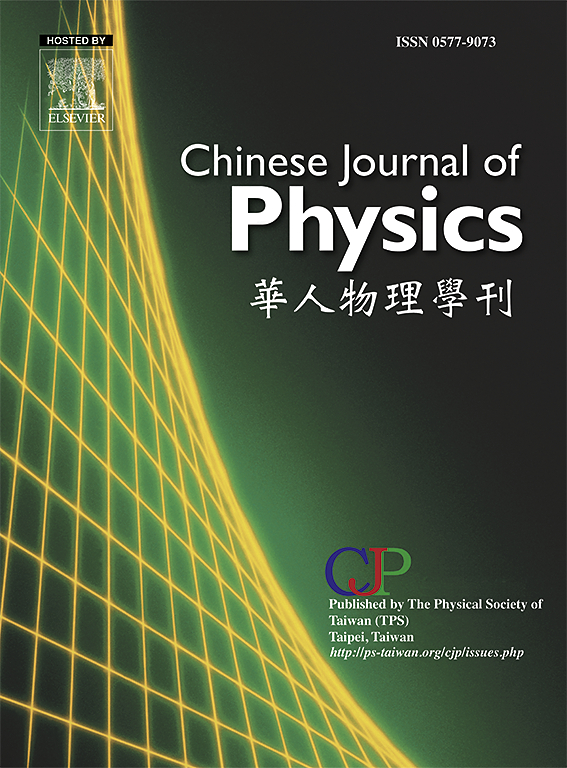Enhancing quantum entanglement with the local displacement-based quantum scissor
IF 4.6
2区 物理与天体物理
Q1 PHYSICS, MULTIDISCIPLINARY
引用次数: 0
Abstract
Entangled quantum states serve as a pivotal resource in quantum information processing, where the preparation of highly entangled quantum states is a core issue. In this paper, we propose a local displacement-based quantum scissor (LDQS) scheme to enhance the entanglement of the two-mode squeezed vacuum (TMSV) state. By introducing a local displacement operation in the traditional quantum scissor, the entanglement of the TMSV state is enhanced by approximately for low initial squeezing () conditions. Compared with the local squeezing-based quantum scissor scheme (Liu et al., 2022), the LDQS scheme eliminates the need for additional pumping and the use of inefficient nonlinear crystals, thereby simplifying the experimental procedure. Moreover, the LDQS scheme provides a greater enhancement in entanglement when both schemes are implemented with the same success probability. Finally, we also demonstrate that the LDQS operation can be used to enhance the entanglement of the TMSV state in lossy channels. These advantages suggest that our scheme shows promise for application in various quantum information tasks, including quantum metrology and quantum communication.

基于局部位移的量子剪刀增强量子纠缠
纠缠态是量子信息处理的关键资源,而高纠缠态的制备是量子信息处理的核心问题。在本文中,我们提出了一种基于局部位移的量子剪刀(LDQS)方案来增强双模压缩真空(TMSV)态的纠缠。通过在传统的量子剪刀中引入局部位移操作,在低初始压缩(r=0.2)条件下,TMSV态的纠缠度提高了约75%。与基于局部压缩的量子剪刀方案(Liu et al., 2022)相比,LDQS方案不需要额外的泵送和使用低效的非线性晶体,从而简化了实验过程。此外,当两种方案的成功概率相同时,LDQS方案提供了更大的纠缠增强。最后,我们还证明了LDQS操作可以用来增强损耗信道中TMSV状态的纠缠。这些优点表明,我们的方案有望应用于各种量子信息任务,包括量子计量和量子通信。
本文章由计算机程序翻译,如有差异,请以英文原文为准。
求助全文
约1分钟内获得全文
求助全文
来源期刊

Chinese Journal of Physics
物理-物理:综合
CiteScore
8.50
自引率
10.00%
发文量
361
审稿时长
44 days
期刊介绍:
The Chinese Journal of Physics publishes important advances in various branches in physics, including statistical and biophysical physics, condensed matter physics, atomic/molecular physics, optics, particle physics and nuclear physics.
The editors welcome manuscripts on:
-General Physics: Statistical and Quantum Mechanics, etc.-
Gravitation and Astrophysics-
Elementary Particles and Fields-
Nuclear Physics-
Atomic, Molecular, and Optical Physics-
Quantum Information and Quantum Computation-
Fluid Dynamics, Nonlinear Dynamics, Chaos, and Complex Networks-
Plasma and Beam Physics-
Condensed Matter: Structure, etc.-
Condensed Matter: Electronic Properties, etc.-
Polymer, Soft Matter, Biological, and Interdisciplinary Physics.
CJP publishes regular research papers, feature articles and review papers.
 求助内容:
求助内容: 应助结果提醒方式:
应助结果提醒方式:


